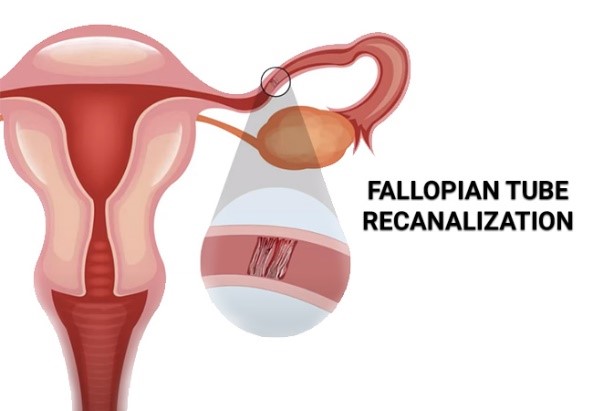Tubal Recanalization

Fallopian tubes are delicate tubular structures that connect the uterus to the ovary. A mature ovum travels along the fallopian tube towards the uterus, and it is here that the sperm fuses with the egg to bring about fertilization. However, an obstruction in these tubes prevents the fusion of the sperm with the egg, thereby causing infertility. Tubal factor infertility is by far the most common cause of female infertility. Fallopian tube recanalization is a technique to remove this fallopian tube blockage by using different techniques.
What Causes Tubal Blockage?
Pelvic inflammatory disease (PID) is the most common cause of tubal factor infertility. This condition refers to the inflammation of the fallopian tubes, uterus, and ovaries. The leading cause of PID includes sexually transmitted infections caused repeatedly by chlamydia or gonorrhea. Inadequate treatment early on leads to the build-up of scar tissue, which causes blockage of one or both the fallopian tubes and subsequent infertility.
Other potential causes of tubal factor infertility include:
-
Endometriosis
-
Previous abdominal surgery
-
History of ectopic pregnancy
-
History of sexually transmitted infection caused by miscarriage
All of the above factors invariably build up scar tissue, debris, and mucus in the fallopian tubes, causing a blockage.
This procedure is done using hysteroscopy and special catheters are inserted to bypass the block. It can be done under laparoscopic guidance. Tuboplasty can also be done by laparotomy or laparoscopy / robotic assistance.
Complications
The patient will likely experience mild cramps and bleeding for a few days following the procedure. Suppose symptoms like extreme pain, discomfort, and bleeding persist long. Consult Dr. Aneeta Talwar, Best Gynaecologist in Bangalore, for appropriate treatment.

